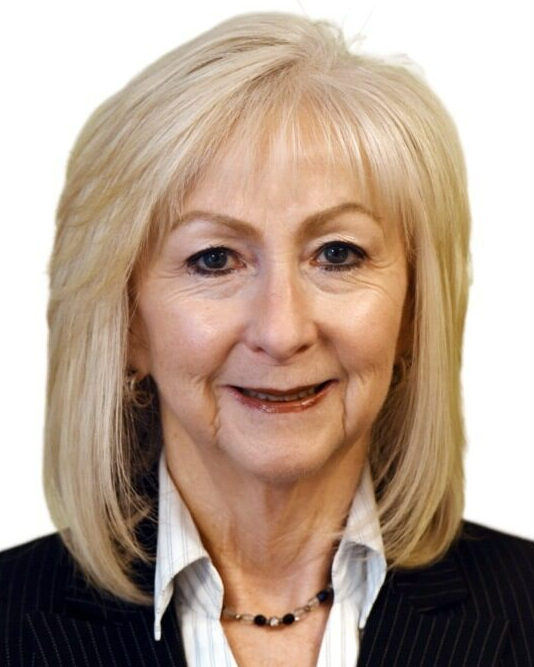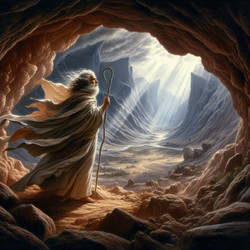Truth Magazine - Women's Insights: Elijah—God’s Chosen Vessel by Bette Wolfgang
Posted by Bette Wolfgang on Mar. 8, 2024
Truth Magazine
Free sample article from
(February, 2024 | No. 2 | Vol. 68)
Edited by Mark Mayberry
2/1/2024
WOMEN’S INSIGHTS: Elijah—God’s Chosen Vessel
By Bette Wolfgang
Synopsis: Elijah, a prophet of God, confronted the evil king Ahab and his wife Jezebel, who worshipped Baal. In challenging the prophets of Baal, he provoked Jezebel’s wrath and fled for his life. However, God strengthened and sustained Elijah—physically, emotionally, and spiritually.
Introduction
Elijah the Tishbite was a man chosen by God to prophesy for Him during the reign of king Ahab and his wife, Jezebel (daughter of the Sidonian king, Ethbaal). Ahab was seen by God, who knows the hearts of all His human creatures, to be the most evil of all kings of Israel to that time, and Jezebel’s name has become a synonym for the term “super-evil”—an apt description.
Elijah apparently made no excuses and began his exceedingly difficult task. God’s care and grace for His prophet can strengthen our own faith as we consult the story in 1 Kings 17-19. During the drought that Elijah had predicted, God, with His fatherly knowledge, understanding, and concern, provided him with food delivered by ravens and water from a stream, reviving his ability to go to his next assignment: to minister to, and be administered to, by a widow. She had a young son for whom she was caring. What little provisions she had were insufficient, but the three of them were provided for miraculously for many days by God’s gift.
Yet, after some time, her son died, and she (in her own human reaction to such a loss, like many today), blamed Elijah, saying, “Oh man of God, you have come to me to bring my sin to remembrance, and to put my son to death!” Elijah replied, “Bring your son to me,” carried the dead boy to his own room, lay down on him, and prayed, saying, “Oh Lord, my God, I pray thee, let this child’s life return to him”—and the child revived. Elijah took the child to his mother, whose response was to profess her new and sure belief that Elijah, in fact, was a man of God, and that “the word of the Lord in your mouth is the truth” (17:24).
After many days, in the third year of the drought, God spoke to Elijah, saying “Show yourself to Ahab,” and “I will send rain on the earth” (18:1). Obadiah, the trusted servant over the king’s house, was carrying out Ahab’s instructions when he met Elijah. Though expressing fear for his own life, as a believer in God, he did what Elijah told him, despite Obadiah’s terror of Ahab. Obadiah went to Ahab and thus Ahab went to meet Elijah. Ahab accused Elijah of being “the troubler of Israel”—but Elijah identified Ahab as the real troubler of Israel, because Ahab had forsaken the Lord’s commandments and followed Baal.
Elijah told the king to call Israel, the 450 prophets of Baal, and the 400 prophets of the Asherah who ate at Jezebel’s table, to gather at Mt. Carmel. Elijah was obviously testing the power of Baal against the power of Jehovah. The prophets of Baal followed Elijah’s instruction: to call on the name of Baal, which they did for hours. As they continued to fail, Elijah mocked them and Baal’s lack of responsiveness. Elijah called all the Israelites to come and witness his sacrifice. Meanwhile, he continued to make his altar harder and harder to light with fire—even to drowning the whole offering and altar with water, ordering three times the amount of water which filled the trench around the altar and sacrifice on it. He prayed to the Lord God, calling on the name of the Lord, who responded with a conflagration of fire which devoured the entire altar and the sacrifice.
Nothing was left. Elijah’s prayer to God was to thank Him for turning the Israelites’ hearts back to Him with His unsurpassable power. He then instructed the Israelites to seize all the 400 prophets of Baal to be slain at the brook Kishon. Elijah then went to the top of Mt. Carmel, where the sky darkened, and a heavy rain ended the drought. The hand of the Lord was on Elijah, who then outran Ahab back to Jezreel. When Ahab told Jezebel all that had occurred, including the killing of the prophets of Baal, she, in her rage, plotted Elijah’s murder, vowing to make him like one of the prophets of Baal by the next day.
Running for his life, Elijah was depleted of energy and in despair. The physical and emotional effects on the human body caused by severe stressors, both physical and mental, were overwhelming. Fleeing (literally) for his life, Elijah suffered from exhaustion, extreme hunger, sleeplessness, anxiety, and depression. These symptoms involve the body, mind, and will to such an extent that Elijah wished for death. At Beersheba, he left his servant, going alone for another day into the wilderness, praying that the Lord would take his life. The angel of the Lord came to Elijah, touched him, and presented him with food and water. “He went in the strength of those provisions forty days and forty nights to Horeb, the mountain of God” (19:8)—where Moses had also met with God on the mountain.
There God appeared to him in the wind, earthquake, and—though God was not in the wind, earthquake, or fire. When God inquired, “What are you doing here, Elijah?” he replied, “I have been very zealous for the Lord” reporting: “The sons of Israel have forsaken the covenant” and killed the prophets of the Lord. At the very mountain where Moses had spent forty days and forty nights when God gave the tablets of the covenant (Exod. 24:12-18), Elijah now comes dejectedly to report that Israel has broken the covenant. Elijah’s journey from Mount Carmel to Mount Horeb may remind those who read discerningly of the later appearance of Elijah and Moses with the Lord Jesus Christ Himself on another mountain—the Mount of Transfiguration.
Elijah’s claim that he alone remained of those serving the Lord may have been one more symptom of the depression he surely must have felt. Yet, his feelings, which seemed so real to him, were not reality. God revealed that there were 7,000 who had not bowed the knee to Baal—and then commissioned him future tasks to be accomplished in God’s name. God has more for Elijah to do—and Elijah has a new purpose to continue his life! Like Moses, he leaves Mt. Horeb refreshed to lead the nation of Israel, anointing kings and prophets (18:15-19).
The Lord knew Elijah’s heart. Elijah had heeded his heavenly Father’s call and experienced that relationship as His chosen vessel through that time of an evil king and the atrocities of Ahab’s wife, Jezebel. Through Elijah’s work for the Lord, he performed despite real and terrifying dangers.
Elijah also provides for all believers thereafter an example of the zeal and concentrated effort for our Lord to the limits of human ability. Running literally for his life, with severe exhaustion, hunger, sleepless deprivation, and anxiety. In our day, all of those symptoms have been shown to be consistent with severe depression, which can explain why Elijah requested that the Lord take his life.
Since God created all humans, He knew the “treatment” for depression: Sleep, eating to provide the strength needed, and a “vacation” from the stressors he was facing. (This is not to argue that, besides these remedies, those who have access to modern anti-depressants should neglect to take them under medical supervision.)
Elijah loved, respected, and honored his Lord and obeyed His will for him; Elijah’s one purpose was to serve him with obedient faith above all with zeal and bravery, no matter the risks! Jehovah manifested love for Elijah, counteracting his understandable bouts with depression and restoring him to full service, and ultimately providing a “chariot of fire” to take him to heaven in a whirlwind (2 Kings 2:11).
A question for each person who lives arises from this narrative of Elijah’s life: What is my purpose for my life? What is my number one goal?
We will not perform God’s will perfectly, and likely not with as much notable service, historically, as did Elijah. We may have our own demanding responsibilities in our lives, but our service for the Lord must be first in each life in order to be pleasing to God, as Elijah’s was. He and Moses were the only ones present with Jesus in the Transfiguration.
Two women—the widow and the evil queen Jezebel—each had effects on Elijah’s life. The widow grew into full belief about the one true God, while Jezebel became the embodiment of pure evil! As women, our strong belief in the Lord must also be first in our lives, as it was with Elijah. The faithful in Scripture includes both women and men, as we were all created in His image. God requires of us, as His image-bearers, the same faith as Elijah, Moses, and His Son, Jesus! God Himself listened and knew Elijah’s concerns—as He will to all who love and obey Him!

Bette Wolfgang is retired from a thirty-year career as a board-certified psychologist. She and her husband, Steve, worship with the Downers Grove church in the western suburbs of Chicago, IL. She can be reached here.
…
 Back to Main Menu
Back to Main Menu

